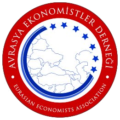
International Conference on Eurasian Economies
24-25 August 2021 – Istanbul, TURKEY and ONLINE
Paper properties
Paper ID : 2495
Status : Paper submitted to journal
Language : Turkish
Topic : Macroeconomics
Presenter: Dr. Esma Erdoğan
Session : 5B Enflasyon
Inflation Uncertainty and Friedman-Ball Hypothesis: The Case of Turkey
Enflasyon Belirsizliği ve Friedman-Ball Hipotezi: Türkiye Örneği
- Prof. Dr. Harun Bal (Çukurova University, Türkiye)
- Dr. Esma Erdoğan (Çukurova University, Türkiye)
- Ph.D. candidate Ayat Abdelrahim Suliman Esaa (Çukurova University, Türkiye)
Abstract
Friedman-Ball's hypothesis draws attention to the invisible additional costs of inflation, which results from increasing inflation uncertainty. The hypothesis argues that increasing inflation leads to an asymmetric information problem, that brings along more inflation uncertainty, and thus there is a positive relationship between inflation and inflation uncertainty. At present, interest in this issue has decreased significantly, inflation rates are at moderate levels in most countries, and even negative (deflation) in a small number of countries. However, inflation and its costs remain popular in some countries such as Turkey. In this context, there exist significant literature about whether the Friedman-Ball hypothesis is valid in the Turkish economy or not. Here with, the present study purposes getting new evidence about the validity of the Friedman-Ball hypothesis in the Turkish economy for the period of 1985:01–2020:12. The results of the TGARCH and EGARCH models verify the validity of the Friedman-Ball hypothesis and indicate that high inflation increases inflation uncertainty both in the short and long run. Overall, the results point out the importance of striving against inflation.
JEL codes: C22, C32, E31



